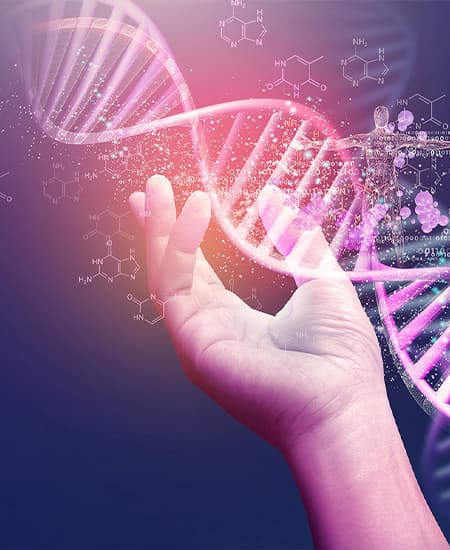Dean’s Annual Address for the New Academic Year 2025-2026
Welcome to the new academic year 2025-2026.
First, I would like to welcome the new colleagues who joined the college recently. Warm welcome in your second family.
In my last year address, I mentioned two major challenges before us. These are namely the low student enrollment and the rapidly evolving market needs due to the disruptive AI technology. The pace of change is so high making cosmetic and incremental changes ineffective or useless.
We need to rethink radically what we teach and how we teach.
Our kids in primary schools are already using AI platforms to do their homework and researchers are using AI algorithms to generate models, process large datasets and simulate complex phenomena with remarkable speed and precision. Machines can increasingly perform tasks we once considered uniquely human.
"What should we teach?" in this new era is a burning and quite complex question.
Today, students need to understand not only scientific principles, but how to work synergistically with AI systems. In a recent conference on AI impact on education held in Sharjah University, a speaker concluded his talk by stating that “We must shift from teaching students to compete with machines to teaching them to collaborate with them.”. His statement echoes the message of another scholar from Harvard Medical School who wrote in 2023: “In the future, scientists would spend less time doing routine laboratory work and more time steering AI models toward the research questions they're interested in”. (Wang, H., et al. (2023). Scientific discovery in the age of AI. Nature).
Physics, Biology and Chemistry students must understand quantum computing, computational genomics, molecular modeling and AI-driven drug discover as much as they need to learn how to use traditional techniques to conduct real laboratory experiments. Mathematics students need the knowledge of machine learning algorithms and neural network architectures. All of them must develop computational thinking skills, learn how to critically analyze, identify and filter out the inaccurate or biased AI generated information. The boundaries between traditional science disciplines are blurring more than ever before, and our curriculum must reflect this convergence.
On the teaching methodologies, the traditional lecture-based model, where knowledge flows unidirectionally from professor to student, is increasingly obsolete in an era where information is instantly accessible and AI can provide personalized tutoring.
Assessment methods must also evolve. We need to evaluate students' ability to design experiments, interpret AI-generated results, and solve complex, interdisciplinary problems.
Industry demands professionals who combine both traditional scientific expertise and AI capabilities. Technology companies seek materials scientists who can collaborate with AI in designing new compounds and devices.
Recently, the UAE Ministry of Higher Education and Scientific Research has developed an Outcome-Based Evaluation Framework (OBEF) to enhance the quality and relevance of higher education. This framework shifts the focus on graduate employability, research impact, and community engagement. This is an important paradigm shift that must encourage us to develop stronger partnerships with the local industry, ensuring our curriculum remains relevant and our graduates equipped with the skills the market needs.
The "College of Sciences" of tomorrow may indeed become the "College of Digital Sciences," where computational thinking permeates every discipline. Every laboratory will be a smart laboratory, equipped with AI-powered instruments that can optimize experiments and predict outcomes. Every research project shall involve computational components and every graduate will be fluent in programming languages and comfortable working with large datasets.
The university has launched its EDGE strategy this year and our college has already listed a series of initiatives to be implemented over the years to come in order to navigate this transformation successfully. I strongly believe that three factors need to be given top priority for the strategy to succeed:
- Faculty Development and Talents Recruitment: We must invest in comprehensive professional development programs to help our faculty integrate AI tools into their teaching and research and recruit talented faculty to better prepare our graduates for a market evolving at high pace.
- Infrastructure Investment: High-performance computing clusters, AI development platforms, and advanced software licenses are no longer luxuries but necessities. They need to be developed.
- Interdisciplinary Collaboration: We must break down traditional departmental silos and encourage interdisciplinary collaborations and programs. The future of science is interdisciplinary, and our structure must reflect this reality.
As we begin this new academic year, I hope that each faculty member in the college will embrace this exciting transformation with enthusiasm by using AI tools in his teaching and research, support students to develop computational thinking and adopt computational approaches to solve real and complex problems.
I would like also to take this opportunity to thank our lecturers and lab supervisors for the amazing work they are accomplishing in the labs and urge them to support these initiatives with creativity and dedication.
I am convinced that together, we have the will and the capability to shape a bright future for our College in the era of Digital Sciences, in sha Allah.
Prof. Nouar Tabet, Dean of the College of Sciences
University of Sharjah

